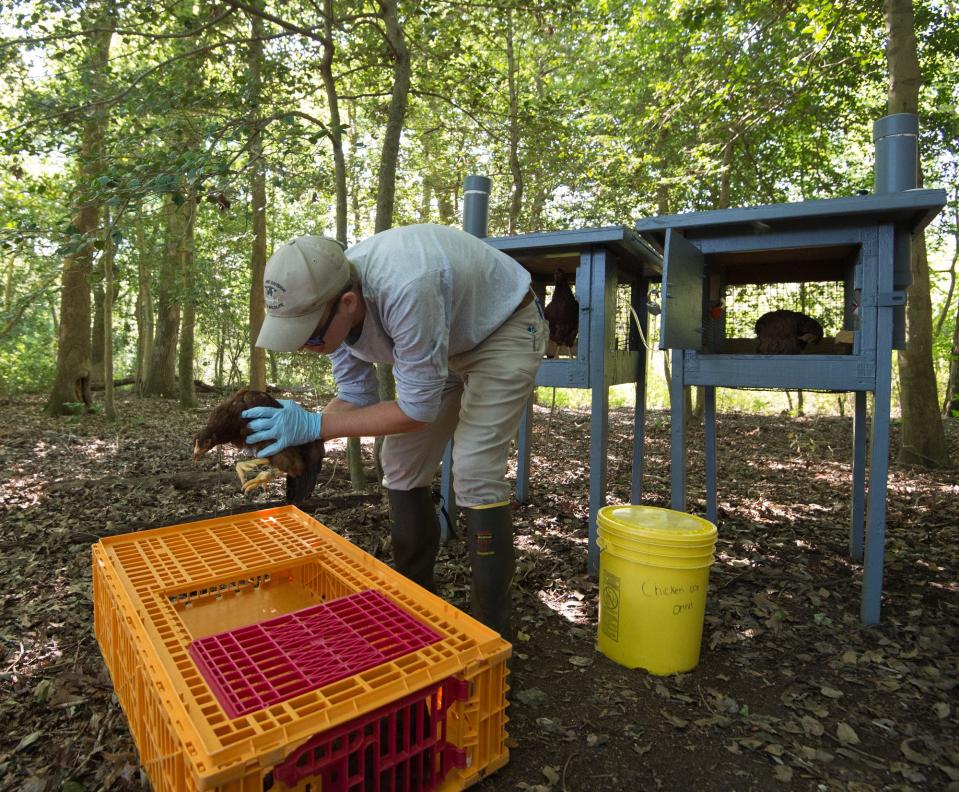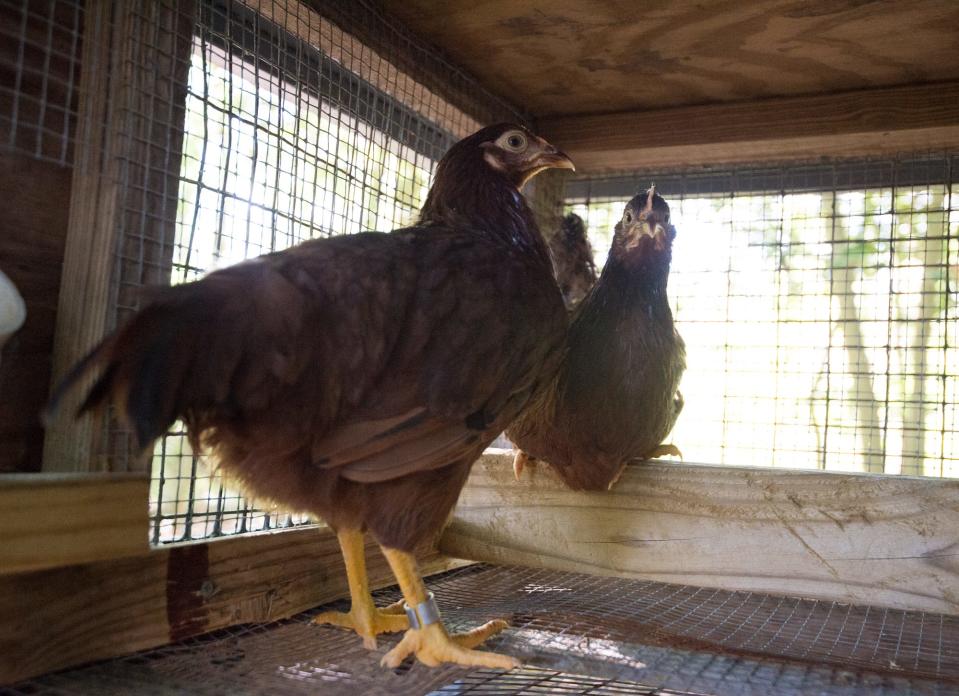Potentially fatal mosquito-borne disease Triple E found in New Castle County chicken
A potentially fatal mosquito-borne disease that's deadlier than West Nile virus was recently found in a Delaware chicken population used to monitor mosquito-transmitted viruses, the Delaware Department of Natural Resources and Environmental Control announced Friday.
Eastern Equine Encephalitis, commonly known as Triple E, was found in a chicken in northern New Castle County. This is the first time this year the illness has been detected.
There have been no reported human cases of Triple E in the state in more than a decade, according to data from the Centers for Disease Control and Prevention. Still, given the disease's lethality, DNREC urges residents and visitors to use mosquito repellent when outside.

Triple E and the West Nile virus, another mosquito-borne illness, are typically a threat until "colder autumn temperatures in late-October or later," DNREC said Friday. In addition to using bug spray, residents should avoid going to mosquito-infested areas – such as perpetually damp locations – especially around dawn, dusk and night.
The Triple E-positive chicken adds to five West Nile virus-positive chickens found earlier this year at three other chicken monitoring stations in New Castle and Kent counties. The first detected case of West Nile virus was found in July, and no human cases have been reported.
2019:Potentially fatal mosquito-borne illness Triple E, worse than West Nile, found in Delaware
No horses have been found to have Triple E or the West Nile virus, either.
Each year from early July into October, DNREC collects weekly blood samples from its 20 chicken monitoring stations located across the state. The animals, which are separate from Delaware’s poultry industry, are used because they are not affected by Triple E or the West Nile virus.
They develop antibodies when bitten by infected mosquitoes but otherwise remain healthy – unlike humans and horses. In people and in equine, both Triple E and the West Nile virus can be fatal, though Triple E is much more serious.
Symptoms of Triple E often appear four to 10 days after being bitten by an infected mosquito. Severe cases can involve encephalitis, an inflammation of the brain, beginning with the sudden onset of headache, high fever, chills and vomiting.
The illness may then cause disorientation, seizures or coma. About 33% of people who contract the disease will die, and many of those who do survive will have significant brain damage or other long-term effects, according to the CDC.
In comparison, less than 1% of people infected with the West Nile virus become severely ill, and most of them recover fully.

There is no specific treatment for Triple E. Instead, care is based on the symptoms.
Most people who contract the West Nile virus don't develop symptoms, though about 20% do develop a mild illness, including a fever, body and muscle aches, headache, nausea, vomiting and a rash. A very small number of people who are infected can develop serious illness involving neurological problems, paralysis and even death.
DNREC asks horse owners to contact their veterinarian immediately if they believe their horse is showing signs of the West Nile virus or Triple E.
Symptoms of Triple E in horses include fever, loss of appetite, head pressing, depression or personality change, wobbling or staggering, weakness, blindness, convulsions, muscle tremors in the head and neck or hind-limb weakness. These symptoms are also consistent with the West Nile virus, though a horse may or may not develop a fever.
For more information about Triple E or the West Nile virus, visit cdc.gov.
Got a story tip or idea? Send to Isabel Hughes at ihughes@delawareonline.com. For all things breaking news, follow her on Twitter at @izzihughes_
This article originally appeared on Delaware News Journal: Mosquito-borne disease Triple E found in northern New Castle County

